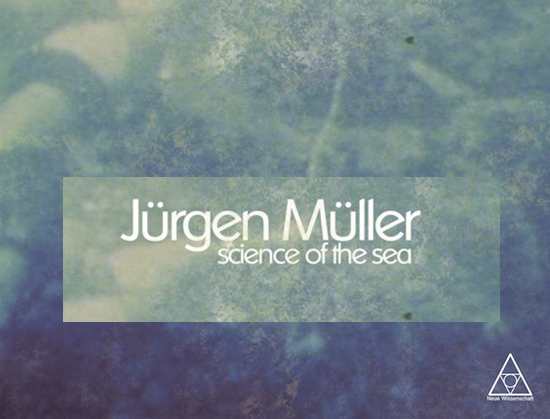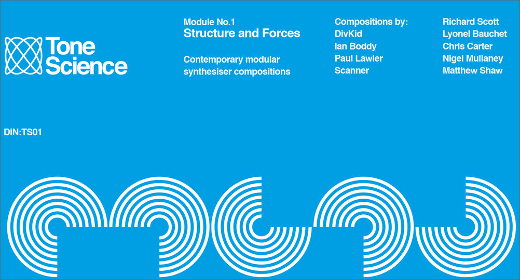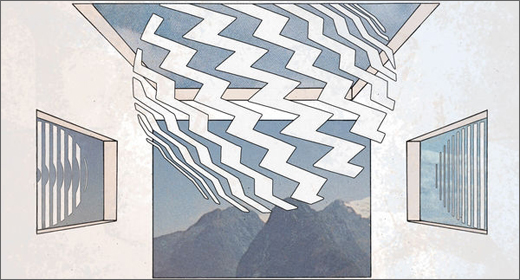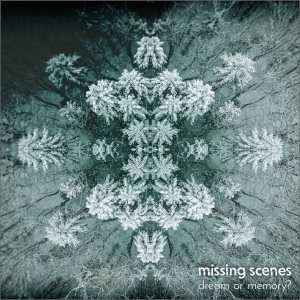There’s a Wes Anderson style quirkiness about Science of the Sea that places it somewhere between Jaques Cousteau and Steve Zissou, an era spanning sound that gently sways from one end of the spectrum to another… an active deep-sea vent from which pours an endless stream of bubbling synths, fizzling effects and swaying aquatic ambience that perfectly recreates the wonders of the sea.
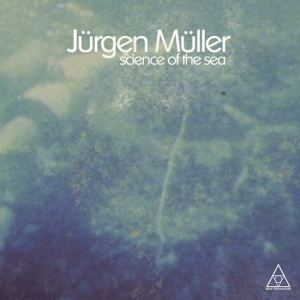
You know what it’s like out there right now. You can’t move for synthwave, kosmische and retro analogue exploration. How to cherry pick from the vast sea of available titles? Well, for a start, here’s an album with a back story… love an album with an intriguing back story. If you’ve already read anything about Science of the Sea, chances are the next paragraph is not going to be news to you.
Back in the late seventies, self-taught amateur musician and Oceanic science student at the University of Kiel Jürgen Müller, set up a mobile studio in his houseboat whilst docked outside Heikendorf on the North Sea. Upon joining a film crew accompanying a mission to document sea-water toxicity testing he found himself captivated by the sea more on an artistic than scientific level and decided to document it himself through music, created with his own and other borrowed electronic instruments. After recording several reels of music and with the intention of becoming a composer for documentary film, he set up his own publishing company, Neue Wissenschaft, but due to studies and other commitments it wasn’t until 1981 that the first sessions began. They weren’t completed until a year later, at which point the majority of the subsequently pressed one-hundred copies were sent to friends and family with few ever reaching potential clients. Müller subsequently abandoned his musical aspirations to purse oceanographic science.
Whether this interesting provenance is true or complete fabrication hardly matters though, as Science of the Sea is a real standout on the merits of the music alone. It’s likely no coincidence either that the whole record has been packaged in a distinctly Boards of Canada style – the faded photographs, the 70’s logo’s, that typeface – as the music is just the sort of thing BoC might have used as source material for sampling and manipulating in their trademark nostalgia soaked style. Even the first limited pressing was on a gorgeous pinkish orange translucent vinyl, the colour of which would shift substantially depending on the ambient light. A second limited pressing on semi-opaque turquoise vinyl has also just been released for those that still crave this on vinyl but missed out the first time around.
There’s a Wes Anderson style quirkiness about Science of the Sea that places it somewhere between Jaques Cousteau and Steve Zissou, an era spanning sound that gently sways from one end of the spectrum to another. “Meeresbett Meditation (Sea Bed Meditation)” is distinctly Zissou, all gurgling analogue keys and muted drones, while the strings of tiny pearlescent bubbles that rise through the soft hiss and becalmed, gently buffeted “Meergrün (Sea Green)” are Cousteau territory. “Das Unfassbare Seepferdchen (The Elusive Seahorse)” has just the right faded, tinny cadences to mark it out as BoC source material, the sort of music you would expect to find on a soundbed beneath Leslie Nielsen narrating images of technicolour coral beds and exotic aquatic marine-life.
It’s probably also fair to say that the majority of the bests tracks are to be found on the first side of this disc, and indeed the track titles refer more to the landscape of the seabed and its inhabitants on side one, whilst side two seems to focus more on the journey and the means to reach it. Hefty amounts of arpeggio comes to fore and “Meer Technik (Marine Technology)” is more Logan’s Run style dystopian futuristic metropolis. The final piece, “Einsame Reise (Lonely Voyage),” is notable for its helicopter growl and multiple layers of tonally different arpeggios. The whole undersea theme is predominantly successful, but interestingly album opener “Jenseits Des Stromes (Beyond The Tide)” is more shimmering crystal castles than coral reefs, laser synths carving out sparkling cut gem formations, whilst “Korallen Phantasi (Coral Fantasy)” mixes seventies prog-rock wizardry with the soaring synthesiser pads of an As One record.
All of this precision crafting means that interestingly, the album sounds better when conveyed digitally rather than on vinyl, the dazzlingly pretty analogue synths particularly unforgiving of any intrusion of crackle and hiss – but half the fun is in the thoughtful presentation of the thing. Perhaps Digitalis might consider offering digital download codes with their vinyl releases in future, or go the LP+CD route of the Motion Sickness of Time Travel release, which would have been a great format for this wonderful LP.
Some of the compositions on so slight one begins to wonder why it took so long to complete, but further listens reveal that Müller has dodged the dreaded new-age bullet by applying just the right amount of restraint to his work, so there’s nothing gaudy, cliched or trippy about it. Science of the Sea is an active deep-sea vent from which pours an endless stream of bubbling synths, fizzling effects and swaying aquatic ambience that perfectly recreates the wonders of the sea.
Science of the Sea is out now on Digitalis.






